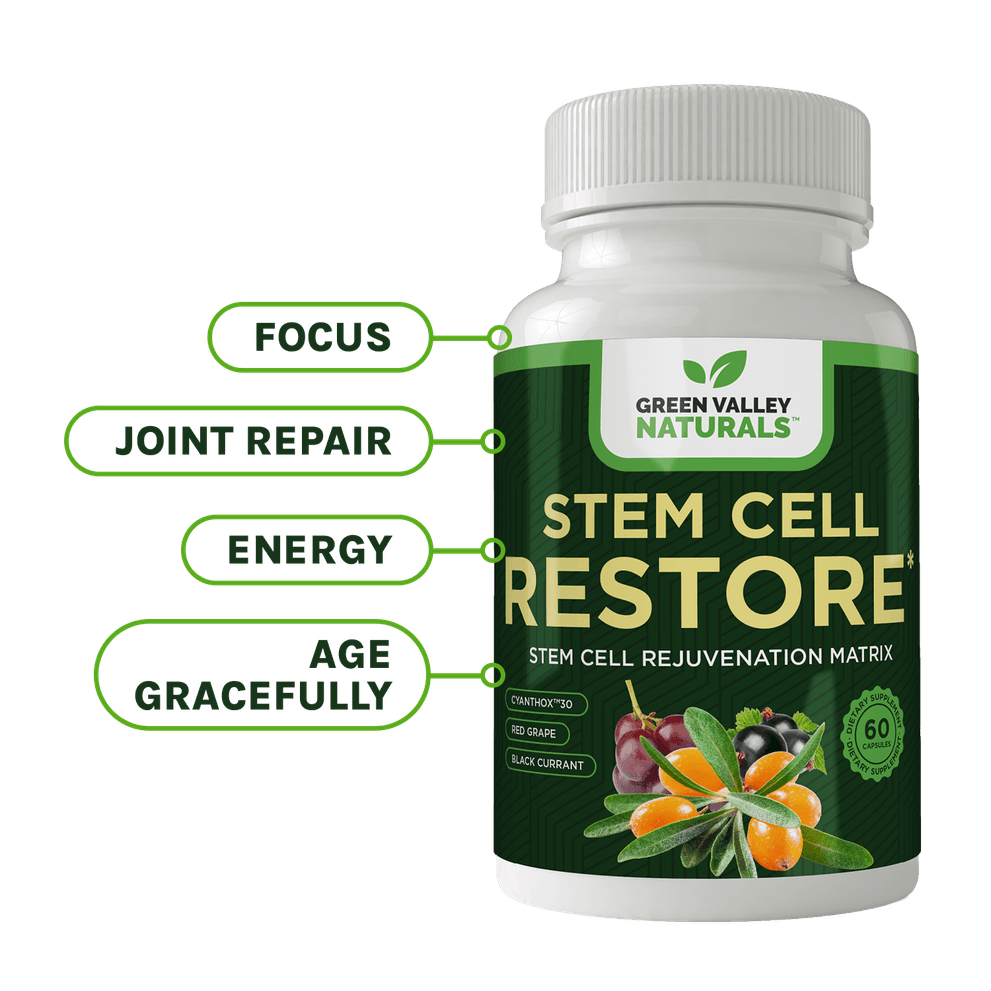
Imagine if the pain in your joints wasn’t just a natural part of aging but something triggered by what’s on your plate. Shocking new research suggests that the bacteria lurking in beef and dairy products might be fueling your arthritis, making every movement more painful than it needs to be. But what if relief wasn’t found in a pill bottle, but in your diet? Scientists are uncovering powerful connections between food, inflammation, and joint health—connections that could change the way we treat arthritis forever. In this article, we dive into the surprising link between meat, gut bacteria, and arthritis pain, and explore natural solutions that could help you move better, with less pain.
Key Takeaways:
- Bacteria in Meat & Dairy May Trigger Arthritis – Research suggests that Mycobacterium avium subspecies paratuberculosis (MAP), commonly found in beef and milk, may play a role in rheumatoid arthritis by triggering inflammation in genetically susceptible individuals.
- A Vegan Diet May Reduce Arthritis Symptoms – Studies indicate that adopting a vegan diet, which eliminates meat and dairy, can significantly reduce joint swelling, tenderness, and pain in people with rheumatoid arthritis.
- Lifestyle Changes Can Ease Arthritis Pain – Beyond diet, anti-inflammatory foods like turmeric and ginger, exercise such as brisk walking, and prebiotics that nourish gut bacteria may all contribute to reducing joint inflammation and improving mobility.
Move Better, Hurt Less: The Foods That Can Help Ease Your Arthritis
If you suffer the pains and aches of arthritis, the bacteria in beef may be the source of your problem.
That’s right – research now shows that not only is beef implicated in many cases of rheumatoid arthritis, but what you eat – no matter what kind of arthritis you have – may have plenty to do with the aches you feel in your joints.
Unfortunately, conventional medicine has mostly tackled arthritis with painkillers, mainly anti-inflammatory drugs. But research now proves that natural methods, such as changing your diet, may work just as well – or better.
Move Better With Less Pain
If you suffer from rheumatoid arthritis, tests now show that following a vegan diet may significantly ease its destructive, painful effects. This form of arthritis is fairly rare compared to the common osteoarthritis, and that’s a good thing because it’s a major health disaster.
A review study in India that looked at a wide collection of studies into how food affects arthritis concludes that a year on a vegan diet produces a “remarkable decrease in swollen and tender joints and pain” in people with rheumatoid arthritis.
The Indian researchers note that vegan diets “have been repeatedly reported to be clinically beneficial.”1
Contaminated Meat and Milk
One reason that vegan diets may help with arthritis is revealed by a study at the University of Central Florida. The researchers there stumbled on a connection between rheumatoid arthritis and a strain of bacteria called Mycobacterium avium subspecies paratuberculosis (MAP).
The researchers point out that MAP can be picked up by humans by eating infected beef or drinking infected milk. About half of all beef and milk contain this microbe.
According to researcher Saleh Naser, if you have a genetic mutation that makes you more vulnerable to rheumatoid arthritis, exposure to these bacteria in your food may be the impetus that sets off the disease.
Other Lifestyle Choices Affect Arthritis Pain
- A study in Sweden found that going on a Mediterranean diet, eating mostly fruits and vegetables along with fish and limited meat, can reduce the inflammation of arthritis. The researchers also noted that the diet produced “an increase in physical function and improved vitality.”2
- Lab studies in the Middle East have shown that a mixture of turmeric and ginger can help control the symptoms of arthritis. These herbs are well-known as natural anti-inflammatories.3
- Research at Duke University demonstrates that for older people with rheumatoid arthritis, a walking program that involves very brisk walking can cut back on arthritic inflammation, improve the function of the immune system, and boost cardiovascular fitness.4
A study at the University of Rochester Medical Center shows that taking the prebiotic oligofructose may produce a change in your digestive bacteria that cuts inflammation in your knees and other joints.5Now, most of these recommendations for arthritis – eating more fruits and vegetables and getting more exercise – improve your health whether you have arthritis or not. Lifestyle hacks like these almost always lower inflammation -- the chief culprit in arthritis and just about every chronic health issue.
Summary
Recent research has revealed a startling link between diet and arthritis, particularly rheumatoid arthritis. Studies suggest that Mycobacterium avium subspecies paratuberculosis (MAP), a bacteria commonly found in beef and dairy, may trigger inflammation in people with a genetic predisposition to arthritis. On the flip side, a vegan diet has shown significant potential in reducing arthritis symptoms, with participants experiencing less joint swelling and pain. Beyond diet, anti-inflammatory herbs like turmeric and ginger, exercise such as brisk walking, and prebiotic supplements may also play a crucial role in reducing joint inflammation. These natural approaches offer a promising alternative for long-term arthritis relief.
Frequently Asked Questions
Can eating meat really cause arthritis?
Yes, studies suggest that bacteria found in beef and dairy products may trigger inflammatory responses in individuals predisposed to rheumatoid arthritis.
How does a vegan diet help with arthritis?
Research indicates that a vegan diet reduces joint inflammation and pain, likely due to the elimination of meat and dairy and the increased intake of anti-inflammatory plant-based foods.
Are there any natural remedies for arthritis besides diet changes?
Yes! Studies show that turmeric, ginger, brisk walking, and prebiotic supplements can help reduce arthritis-related inflammation and improve mobility.
What is MAP bacteria, and how does it affect arthritis?
MAP (Mycobacterium avium subspecies paratuberculosis) is a bacteria found in contaminated beef and dairy. It has been linked to both rheumatoid arthritis and Crohn’s disease in people with genetic susceptibility.
Can lifestyle changes completely cure arthritis?
While lifestyle changes may not "cure" arthritis, they can significantly reduce symptoms, improve joint function, and enhance overall well-being—often with fewer risks than conventional medications.
- Khanna, S., Jaiswal, K. S., & Gupta, B. (2017). Managing Rheumatoid Arthritis with Dietary Interventions. Frontiers in Nutrition, 4, 301603. https://doi.org/10.3389/fnut.2017.00052
- Sköldstam, L., Hagfors, L., & Johansson, G. (2003). An experimental study of a Mediterranean diet intervention for patients with rheumatoid arthritis. Annals of the Rheumatic Diseases, 62(2), 208–214.
- Ramadan, G., & El-Menshawy, O. (2013). Protective effects of ginger-turmeric rhizomes mixture on joint inflammation, atherogenesis, kidney dysfunction and other complications in a rat model of human rheumatoid arthritis. International Journal of Rheumatic Diseases, 16(2), 219-229. https://doi.org/10.1111/1756-185X.12054
- Bartlett, D. B., Willis, L. H., Slentz, C. A., Hoselton, A., Kelly, L., Huebner, J. L., Kraus, V. B., Moss, J., Muehlbauer, M. J., Spielmann, G., Kraus, W. E., Lord, J. M., & Huffman, K. M. (2018). Ten weeks of high-intensity interval walk training is associated with reduced disease activity and improved innate immune function in older adults with rheumatoid arthritis: A pilot study. Arthritis Research & Therapy, 20, 127. https://doi.org/10.1186/s13075-018-1624-x
- Schott, E. M., Farnsworth, C. W., Grier, A., Lillis, J. A., Soniwala, S., Dadourian, G. H., Bell, R. D., Doolittle, M. L., Villani, D. A., Awad, H., Ketz, J. P., Kamal, F., Ackert-Bicknell, C., Ashton, J. M., Gill, S. R., Mooney, R. A., & Zuscik, M. J. (2018). Targeting the gut microbiome to treat the osteoarthritis of obesity. JCI Insight, 3(8), e95997. https://doi.org/10.1172/jci.insight.95997
Stem Cell Restore
Increased Energy from Organic Tibetan Sea Buckthorn Trans-Resveratrol, Vitamin D

